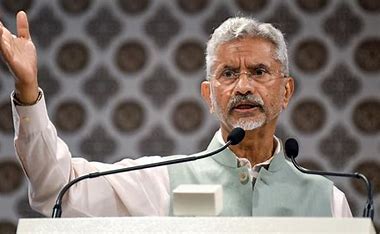
Digitization started in the early 1980s. Since then, the non-stop digital revolution has transformed the way we work, communicate, bank, study, entertain, shop etc. everything has changed. In the new global order, digitisation has emerged as a reckoning factor in ascertaining ranking of any country, consequently many governments have switched on to digitalization.
The Government of India too has a digital India campaign to make its services available to citizens electronically through improved online infrastructure and by increasing Internet connectivity which is resulting in tremendous benefits to the residents. According to a 2023 IDC (International Data Corporation) report 69% of Indian organizations identify themselves as “digital business, either possess a well-defined digital strategy supported by widespread implementation of digital technologies throughout their operations, or they are actively undergoing a transformation process to enhance their digital capabilities.
Digitization focuses on converting all the hard stuff mainly printed on paper into digital form. Which remains an issue, a point of deliberation and pondering as digitization should not lead to removing and eliminating all the print format of documents, books and other material of study. Adopting Innovations, advancements in information technology, should not be at the cost of other forms or medium of study.
Relying only on online substance and being hooked up all the time may leave a person shallow and naïve and a reason that the new generation is lacking knowledge in depth. Wikipedia, Quora etc. are the popular sources of information. Which provide insubstantial knowledge in a wide number of areas, however, hardly cover a single area of complete, comprehensive and in-depth knowledge.
Conventional libraries are ceasing their activities, while the number of digital libraries is rising constantly. However, digital libraries require a device and connectivity to access. Sometimes the digital medium is distracting and stressful, one cannot concentrate for long while reading on screen. There are more distractions and moving parts on screens that we don’t have in print. Some research even shows that our brain behaves differently when reading something in print and on screen. Print triggers more emotions, making it easier for the reader to recall detail in the future. We should not and cannot abandon the print form completely. For scholars, academicians and literary works online & digital information is mostly for reference and perusal purpose.
The paper was invented long ago in AD 105 in China and had continuous improvements to make it more adaptable and useful. After the invention of the printing press in around 1436 in Germany printed papers, books and other material became extremely popular, convenient and useful in every walk of life. For scholarly and literary purposes printed material is necessary and almost indispensable. Printed books and detailed reports give knowledge in depth. Printed books do not require any technology or connectivity for access.
Joseph M. Juran, was an evangelist for quality and quality management, the quality guru and the author of ISO standards in America and elsewhere. His 400 page autobiography “Architect of Quality, is a highly inspirational, heartrending and unforgettable story. Few people or none have the patience and stamina to read it online. Print form can provide the patience to read it comfortably without distractions.
If the in-charge of implementing quality and ISO procedures in an organization does not have thorough knowledge about joseph M. Juran, no matter what designation he might hold, he remains naive. Who remain stuck to set defined procedures only and can barely bring any change or innovation. To know Joseph M.Juran internet information is not enough. One must read books written by him. Most digital sources have brief contents about him, like he was born on December 24, 1904, was a management consultant, quality guru, an author and a few more about his theories etc.
This information will satisfy most of the people and give a false feeling that they know Joseph M. Juran. But in fact, one cannot have an idea about the very inspirational struggle of Joseph M. Juran, he went through to achieve his goals, without going into details as he recounted in his books, his autobiography. How he grew and raised from a poverty ridden childhood to become the guru of the quality system and got recognition all over the world. There is a difference between knowledge and information.
The tsunami of digitisation is overtaking all print or hard forms of stuff. Many people who paused the newspaper print version subscriptions during the covid-19 pandemic have permanently discontinued it. Thousands of newspaper vendors’ jobs are in jeopardy. It’s a question of the survival of an industry. Evidently the print industry is on its knees around the world.
Many renowned magazines like Entertainment weekly, Life, Vogue, which used to embellish the grace of drawing rooms of many have been moved away. People have stopped subscribing print versions or the publishers either stopped the print versions completely or reduced the frequency.
The New Yorker and The Economist have had major issues figuring out what to do next due to declining subscription. The New Yorker had to scale back issues, and The Economist waited almost 8 months before rolling out an iPad application. Joy of standing at a book stall and browsing through magazines and books may become a thing of the past soon. Going absolute paperless may be heartbroken for many. Sustaining the print version in the gleaming digitized world is a race against time.
The writer is a Dubai based freelance columnist,















